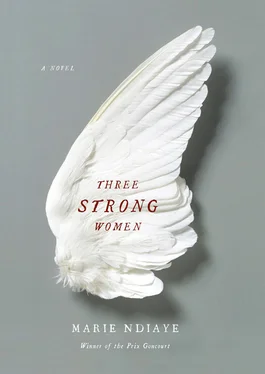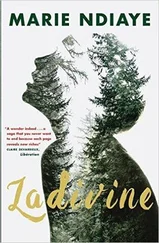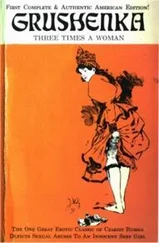If Manille had been unable to show him an iota of compassion, merely irritation and impatience, everything would have been much simpler.
Should he not detest Manille?
Wasn’t it shameful and deeply regrettable that the kindness, the pity, and (albeit barely perceptible, despite it all) the arrogance that he read in his boss’s eyes prevented his feeling the hatred he thought any normal person would have cultivated toward the man who …
Still dumbfounded, even though it had all happened two years earlier, he shook his head slowly, pondering the retribution a normal man would have formulated in his mind. It wasn’t as if he was there at Manille’s place, biding his time, just waiting for the ultimate moment to bring down an avenging fist on Manille’s head, and Manille knew this perfectly well too, so he had no fear of Rudy, had never feared him.
“So that’s how it is, eh?” Rudy wondered.
Was it admirable or was it degrading? Who knows?
He thought he could smell the holm oaks in the distance.
It was probably only the memory of that rather sour scent of their tiny silky leaves, but he thought if he breathed in gently he could indeed smell them. It cheered him up and made him almost happy to imagine himself over there, in the chateau, opening the shutters on a clear bright morning and sniffing his holm oaks, smelling the tart odor of the tiny silky leaves, every one of which belonged to him, Rudy Descas — but he would never have scalped those poor old trees as they had dared to do, those Americans or Australians who’d had the impertinence, according to Mummy, to believe themselves sufficiently French to produce the same excellent wine that …
The thought of Mummy, of her pale, bitter face, snuffed out his cheerfulness.
He was tempted to go back into the phone booth and ring Fanta again, not to check that she was still in the house (Though come to think of it, he thought, suddenly anxious), but to promise her that everything would be all right.
There, in the heat heavy with the smell of the holm oaks, he felt carried away by love and compassion.
Everything would be all right?
Based only on some vision of himself opening the shutters in their bedroom on the first floor of the chateau?
No matter, he would have liked to talk to her, to inspire her with the confidence filling his heart at this moment, as if, for once, the reality of existence coincided exactly with his daydreams, or was just about to do so.
He made as if to go back to the phone booth.
He was upset at the thought of getting back into the stifling Nevada, which smelled vaguely of dog (it sometimes seemed to him that the vehicle’s previous owners had used it as a kennel for their dog, many of whose hairs remained trapped in the felt of the seats).
He decided, however, against calling Fanta again.
He no longer had the time, did he?
And if, once again, she failed to answer, what conclusions could he draw from that, and what good would it do?
And anyway he no longer really had the time.
But she wouldn’t run away without Djibril, and the child was out of reach for the moment, wasn’t he?
He cursed himself for working that out.
He almost felt then like defending Fanta against himself and his nasty calculating ways.
Oh, what could he do, considering that he loved her?
“What else can I do, dear God, good little father, good, kind little god of Mummy’s?”
He was convinced that the flimsy, very flimsy and unstable, armature of his existence held together and only barely because, after all, Fanta was present, present more like a small hen whose clipped wings prevented her from flying over the lowest fence than like the brave independent human being whom he’d met at the Lycée Mermoz. He could hardly bear that thought, it made him feel ashamed, and he only managed to countenance it because this dreary state of affairs was merely provisional in his eyes.
It wasn’t just the lack of money — was it?
To what extent did his monthly salary of a thousand euros make him less alluring than someone like Manille?
Yes, yes (standing all alone in the ten o’clock sun, near the scorching hood of his car, and shrugging impatiently), that was true to a large extent, certainly, but what he lacked above all was faith in his own talents, in his good fortune, and in the infinitude of his youth, which once shone in the clear blue eyes he’d inherited from Mummy, which caused that hand, at once caressing and indifferent, to sweep back the lock of fair hair on his forehead, and which …
All that he’d well and truly lost, even though he wasn’t old, even though compared with others he was still almost young, all that he no longer possessed since his return to France: all that must have played an essential part in making Fanta fall in love with him.
If only — he said to himself — he could slough off this harsh, depressing, painful, degrading nightmare and rediscover, even if it only meant moving from one dream to another, the vision of Fanta and himself, bathed in golden light, walking side by side in the streets of Colobane, their naked arms brushing against each other at every step, he, Rudy, tall and tanned, talking in his strong, cheerful voice, striving already, even though he was unaware of it, to ensnare in his web of tender, flattering, bewitching words this young woman with the small shaven head, with the discreetly ironic, direct gaze, who’d pulled herself up to the level of the Lycée Mermoz, where she taught French literature to the children of army officers and prosperous businessmen; those adolescents had no idea, Rudy declaimed in his strong, cheerful voice, of the frightening determination it had required for this woman to be able to stand before them, this woman with the winged feet and the delicate quivering skin on her forehead, no idea of the time and trouble it took her to maintain the only two cotton skirts she possessed, one pink and the other white, always beautifully ironed, which she wore with a tank top, between the straps of which the delicate skin of her back, quivering as if two tiny wings …
He, Rudy Descas, had really been that charming, lighthearted, smooth-talking young man whom Fanta had eventually taken home, to the apartment with green walls where they all lived.
He remembered how his heart skipped a beat when he entered the room suffused with shimmering, vaguely funereal light.
He’d first climbed a cement staircase behind her and then walked along a gallery entered through doors with peeling paint.
Fanta had opened the last one and the greenish half light, accentuated by the window shutters, had seemed to engulf her.
He’d seen nothing but the white patch of her skirt as she’d entered the room before coming back and inviting him in, having checked, he’d supposed, that the apartment was in a fit state to be seen.
And he’d moved forward, not without shyness and some embarrassment, but chiefly it was gratitude that suddenly rendered him speechless.
Because in the greenish half light Fanta’s calm expression said, Here’s where I live, this is my home.
Her expression accepting the judgment of a foreigner with a white face (in that respect his tan made no difference!), blond hair, and smooth white hands on her well-kept but very humble home — accepting it, and together with it, the potential effects, the possible feelings of uneasiness or condescension.
Rudy could sense, could almost hear, how this woman took in everything, how shrewd, lucid, and immensely perceptive she was, but also how profoundly indifferent, out of pride, to how a man with such a white forehead, such white, smooth hands, might view her home.
She must have taken him, with his blond hair and fine words, for a wealthy, spoiled young man.
Читать дальше












